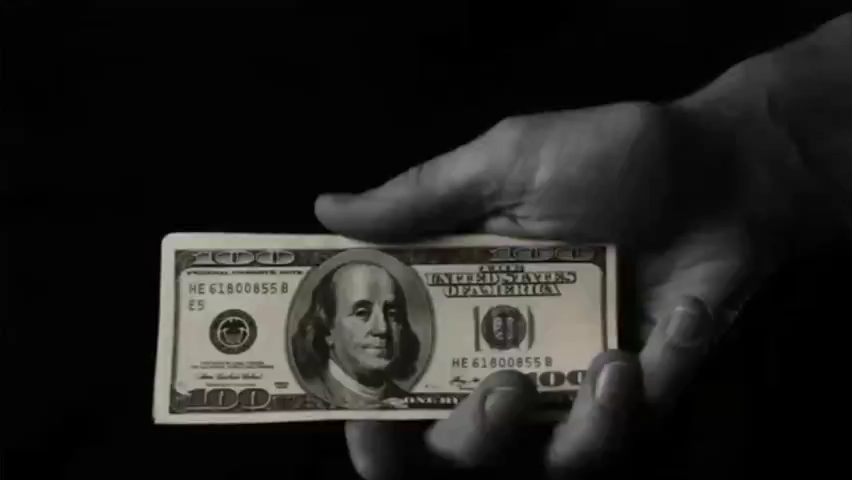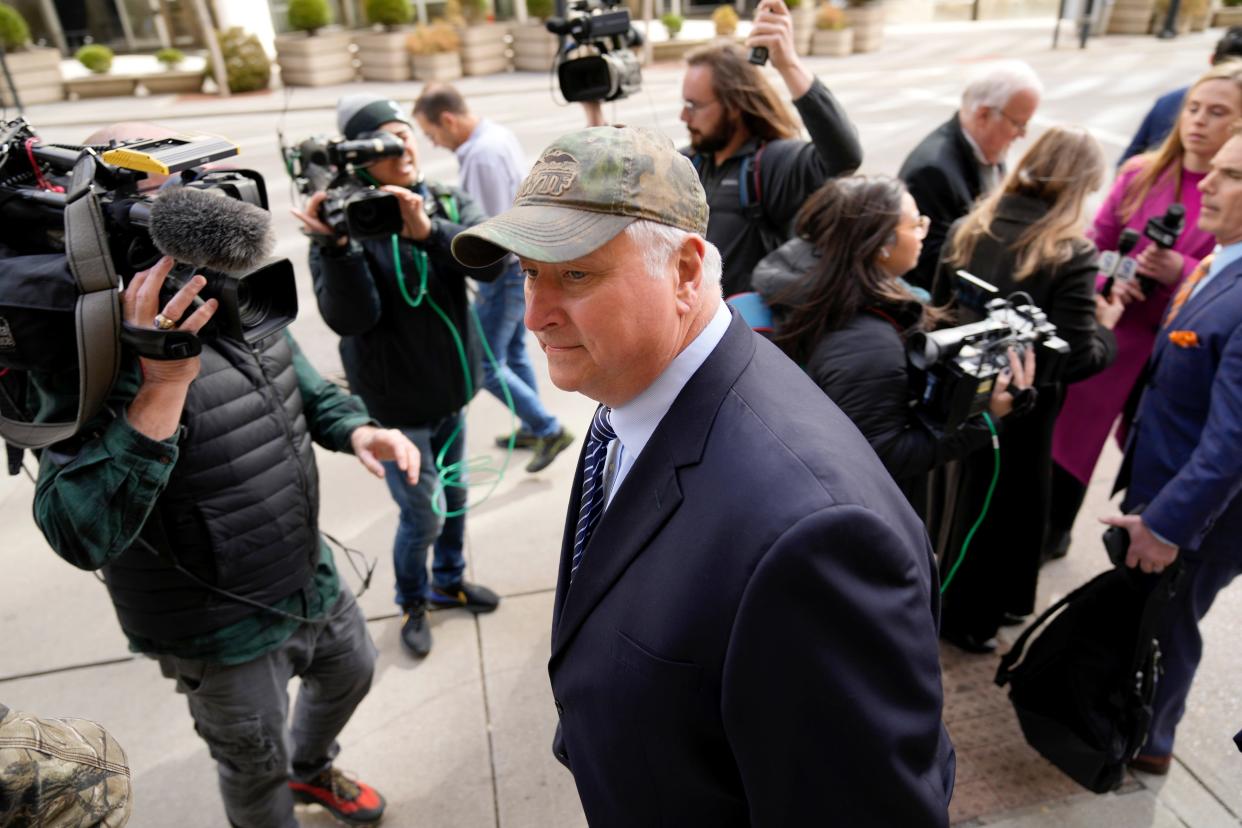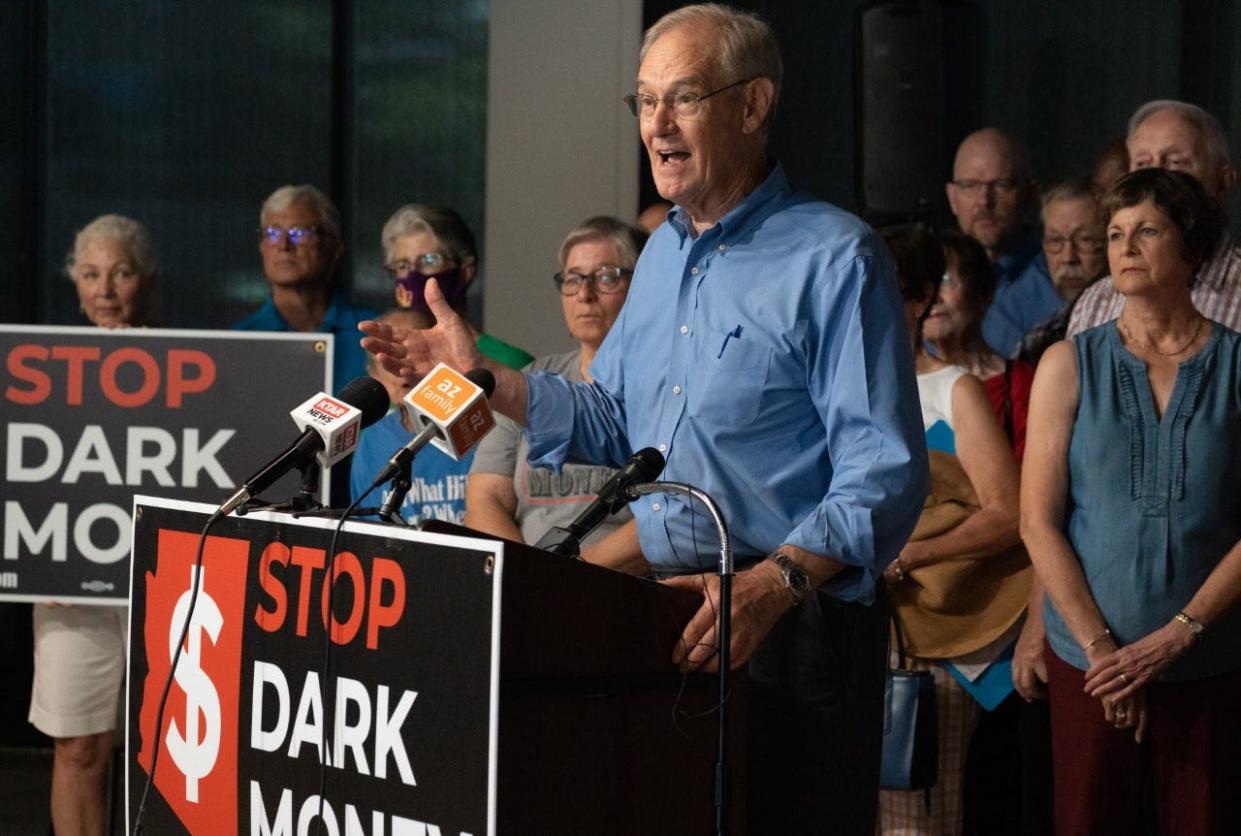Ohio has done nothing to disclose dark money after major pay-to-play scandal

A powerful utility spent millions through a web of dark money groups to hand-pick candidates with influence over customers' electric bills.
But in this scenario, the voters of Arizona passed legislation to unmask the donors behind dark money groups influencing their politics.
In Ohio, federal and state prosecutors are untangling one of the largest corruption scandals in the nation, involving a powerful utility, Akron-based FirstEnergy, that admitted it bribed one top lawmaker and a utility regulator through multiple dark money groups.
The fallout from the House Bill 6 scandal has been significant. Ex-Ohio House Speaker Larry Householder was sentenced to 20 years in prison for his role in the scheme, ex-Ohio Republican Party Chairman Matt Borges was sentenced to five years incarceration and FirstEnergy fired several executives.

But no one has passed a law to disclose the source of secretive spending that continues to influence Ohio politics.
"Ohio remains dry tinder for another forest fire of corruption to sweep through this state because the General Assembly has done nothing to prevent it," said former Rep. Jessica Miranda, D-Forest Park, when pitching a proposed fix. "The exact same conditions exist today."
More: Despite bribery scandal, influence of dark money in Ohio remains unchecked
How dark money influences politics
In 2010, a divided U.S. Supreme Court ruled that the First Amendment protected corporations' and unions' right to donate to independent expenditure groups, which can support candidates but aren't run by their campaigns. The case was Citizens United v. Federal Election Commission and it stemmed from a film criticizing presidential candidate Hillary Clinton in 2008.
In the years since that ruling, corporations have donated large sums to groups that are not required to disclose their donors publicly, such as 501(c)(4) nonprofit organizations. The groups have innocuous names like Generation Now, Partners for Progress, Honor and Principles PAC, Liberty Ohio, Sixteen Thirty Fund and Securing Ohio's Future that hide their actual donors and purposes.
OpenSecrets, a nonprofit reporting on campaign spending, has tracked $2.8 billion in dark money spending and contributions since the 2010 election. These donations benefit both Democrats and Republicans, and the spending keeps increasing, OpenSecrets found.
Akron-based FirstEnergy, the company at the center of Ohio's scandal, described dark money groups as their "preferred manner of giving" in records because "they are not required to disclose where the donations come from.” The company later paid a $230 million fine after admitting it bribed public officials.
While these groups largely operate in the shadows, the U.S. Supreme Court ruled in 2010 that the government could require corporations and unions to disclose who paid for political ads and mailers.
"The First Amendment protects political speech; and disclosure permits citizens and shareholders to react to the speech of corporate entities in a proper way," Justice Anthony Kennedy wrote for the majority. "This transparency enables the electorate to make informed decisions and give proper weight to different speakers and messages."
But Congress has done nothing to require disclosure of secretive spending despite frequently introduced bipartisan proposals to report donors who give more than a certain threshold in an election cycle. Some states, such as Alaska, California and Rhode Island, have rules to require some disclosure of dark money donors.
In 2022, Arizona voters approved a new law, 72%-28%, that requires any independent expenditures group spending more than $50,000 in a statewide race to disclose any donor giving $5,000 or more. Several groups have sued to block the law but none have been successful, the Arizona Republic reports.
There is no imminent effort to put this issue on the Ohio ballot. Ohioans could vote on redistricting reform and a $15 minimum wage later this year.
“While secret spending, also known as 'dark money,' continues to influence elections across the country and at all levels of government, voters across the country are taking action to enact real transparency about who is spending big money on elections to reduce the influence of wealthy special interests," said Patrick Llewellyn, state campaign finance director for the Campaign Legal Center, which advocated for the Arizona measure.
What has Ohio done to unmask dark money?

Unlike Arizona, Ohio has done nothing to require dark money to be disclosed − even after its prominent scandal.
Shortly after the U.S. Supreme Court decided Citizens United, then-state Sen. Jon Husted, a Republican, tried to require corporations and unions to report expenditures regularly. His proposal passed the GOP-controlled Senate only to fail in the Democratic-controlled House. Husted is now the lieutenant governor.
After ex-House Speaker Householder's arrest in 2020, a bipartisan group of lawmakers tried again with the backing of Ohio Secretary of State Frank LaRose, but that effort also failed.
The latest proposal has no Republican co-sponsors in a Legislature controlled by the GOP. The sole hearing on House Bill 112 offered a window into the uphill climb that any dark money disclosure bill would face in Ohio.
The bill's two Democratic sponsors, Reps. Bride Rose Sweeney of Westlake and Jessica Miranda of Forest Park, answered questions about why their proposal applied to ballot issues in addition to candidate campaigns and why it punished legal spending because of a few bad actors.
Rep. Bill Seitz, R-Green Township, asked about the threat of corporations being doxxed and disparaged for their donations. “They could be the worst people on the planet but if they have a good idea, they should be able to do that anonymously without being vilified."
Sweeney replied that she understood that concern but sided with Ohioans' right to know who was spending money on ads and political messages. She also agreed that honest, law-abiding groups were using dark money in Ohio elections.
“Just because you’re spending dark money does not mean you’re corrupt or doing bad things," Sweeney said. "The reality is if you are corrupt, you are going to utilize that, and they have.”
Is there the political will to change it?
Federal and state investigations − and the records they created − have revealed FirstEnergy's prolific political spending in Ohio, including through dark money groups to support Husted, Gov. Mike DeWine and Senate President Matt Huffman. But the public learned these details years after the checks were cashed and the votes were tallied.
Ohio's top three Republicans − DeWine, Huffman and House Speaker Jason Stephens − all say they're open to a legal way to disclose dark money donors.
"Having more information for the voters, where money is coming from, is always a good thing," Stephens told reporters.
And yet, nothing has passed.
House Minority Leader Allison Russo, D-Upper Arlington, said she knows why: "The reality is there seems to be no political will here to put in place protections that prevent this type of scandal from happening in the future."
USA TODAY Network Ohio Bureau reporter Haley BeMiller contributed to this article.
Jessie Balmert is a reporter for the USA TODAY Network Ohio Bureau, which serves the Columbus Dispatch, Cincinnati Enquirer, Akron Beacon Journal and 18 other affiliated news organizations across Ohio.
This article originally appeared on Cincinnati Enquirer: Why doesn't Ohio require dark money groups to disclose donors?
